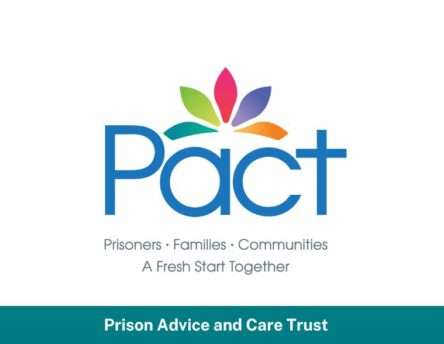Breaking down language barriers for inmates: “I can see a future for myself”
Our partners, Pact, speak to an inmate who has participated in the Building Bridges project, which seeks to enhance the accessibility of these courses for speakers of English as a second or additional language (ESL) in prison.
Pact is a pioneering national charity that supports prisoners, people with convictions, and their children and families. The charity delivers a range of relationship, parenting, social and emotional education courses designed to support the rehabilitation of prisoners.
With funding from the Foundation, the Building Bridges project seeks to enhance the accessibility of these courses for speakers of English as a second or additional language (ESL) in prison, ensuring that all are able to benefit from the support available. Approximately 70 participants have participated in the project so far.
T is a polish speaker and a current inmate. Our partners Pact spoke with T to hear his reflections on participating in the Building Bridges project.

What is your first language and how comfortable do you feel speaking and understanding English, written and spoken?
My first language is Polish. My English, both spoken and written are at a good level now, but it has not always been that way. I now have Level 1 English and I use this to support others on my wing with their understanding.
Did you find it difficult to access information or services in prison because of language barriers?
Yes, when you first arrive most of the information is in English, including all the induction material. On top of that, there are maybe two guards in the whole prison who speak a little Polish.
This means you can easily miss out on important information like canteen times and how to order [food], any education, or getting in contact with the immigration department. It can feel very lonely if you cannot communicate with others and ask for help. Many prisoners turn to others to translate for them, but they can be reluctant to do that because they do not know them.
I also found that it leads to misunderstanding between staff and the prisoners, with the prisoners getting adjudications against them because the member of staff and prisoner can’t understand one another or the situation.
How did you first hear about Pact’s project and what made you decide to take part?
I was already working with a Pact member of staff, when she mentioned the work Pact was doing with the workbooks and making them more accessible. I said I would like to help, because I know how hard it is for prisoners who don’t speak very good English to get the support they need.
Can you tell us about the support you have received working with Pact?
Working with Pact, I have completed three workbooks which I feel have helped me understand myself better. As well as this, Pact has helped me complete a family court application. This is to get the opportunity to see my son. My ex-partner prevented me from seeing my son because I came to prison, and Pact has helped me apply to the court.
What kind of materials or help did you find most helpful?
All of it. The workbooks helped me to better understand myself, where I went wrong in the past and what I can do differently. It also shows probation that I am trying to better myself. Also, without Pact I would never have been able to understand the process to apply to the court on my own.

Did the workbooks and support provided by Pact help you better connect with your family or change your approach to relationships?
Yes, the workbooks have given me a more positive outlook and changed my thinking patterns. Things seemed very hard when I got here, but now I think I can cope, and nothing will break me. They have also helped me change my approach when talking to my ex-partner – I now do this in a more relaxed and positive way.
Did Pact help you better understand your rights, the prison system or how you could stay in touch with your family?
Yes, most definitely with the court application to see my 8-year-old son, I couldn’t have done it without them.
What has been the most valuable thing you have learnt from working with Pact?
Having the potential to see my son has been the most valuable thing, as I thought I would never see him again. Also, the workbooks have helped to change my mindset to a more positive one.
What do you hope to do after prison?
I do tiling, and I want to start my own business. I have a friend who I will work with for around a year. This means I can save some money to buy tools etc. Then I will start my own business.
Has Pact helped change the way you think about your future?
Yes, working with Pact has given me more help for the future, not only with my son, but also for me, and my feelings about myself. I am less stressed now and can see a future for myself.
What kind of support do you think would help people who speak ESL in prison?
The staff need to be more patient and understanding. Before I was here, I was in another prison for a while. I felt like I was singled out and treated worse because I was Polish. I think we need all the information for daily life in prison in an easy-to-find translation, maybe on a board on the wing with simple instructions in each language.
The prison induction is in English – if this is your first time in prison, and you don’t understand what is being said by the man in a uniform, it is very scary. Also, in a foreign national prison the immigration department is very important. All the forms are in English, they can get you a translated version, but you have to request them. It should be standard to offer it, and not wait for it to be requested.
About this partner

Our aim is that more people are able to access the work and fully comprehend the meaning behind it before they are released, to support and maintain...family ties and support...wellbeing.
